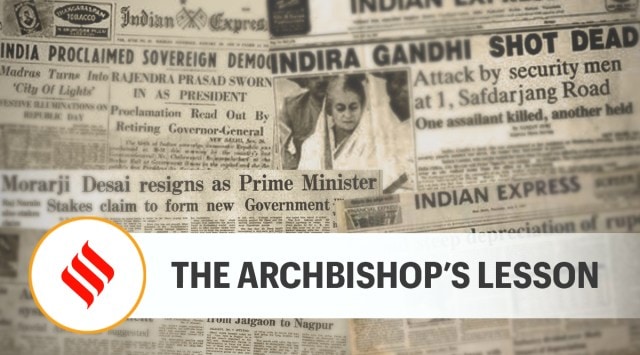
With the death of Archbishop Desmond Tutu — he was 90 — the world has lost a moral and spiritual voice, one closely associated with the anti-apartheid struggle in South Africa and the Truth and Reconciliation Commission that has served as a model to address historical conflicts and the resentments they engender in society. It has also lost the last of a generation of leaders who engaged with public life not as a pursuit of political power, but as a moral exercise aimed at expanding the dignity and decency of all human beings.
Archbishop Tutu’s contribution to and leadership of the anti-apartheid movement began soon after the Second World War and continued till 1991. Perhaps because of his leadership of the Anglican church in South Africa, Tutu was not jailed or exiled, like many others — including Nelson Mandela — were. For decades, he held a mirror up to the South African government and urged the global community to do more to end apartheid. As Norwegian Prime Minister Jonas Gahr Store said of his Nobel Peace Prize, which he received in 1986, “Never has a peace prize been so fitting.”
But perhaps most importantly, at a time when the politics of many countries is dominated by religious divisiveness, Archbishop Tutu’s spirituality was inseparable from his political morality — a morality which was expansive and inclusive when he was part of the struggle against a powerful state system, and without rancour when that system eventually came down. Like M K Gandhi and, perhaps to a lesser extent, his friend the Dalai Lama, Tutu provided a model for the constructive role of religious idioms in politics. He would, perhaps, be disappointed by the slide in democratic values and declining respect for diversity in so many parts of the world today. Now, unfortunately, there are few leaders of Desmond Tutu’s stature to lead future Truth and Reconciliation Commissions.
This editorial first appeared in the print edition on December 28, 2021 under the title ‘The Archbishop’s lesson’.